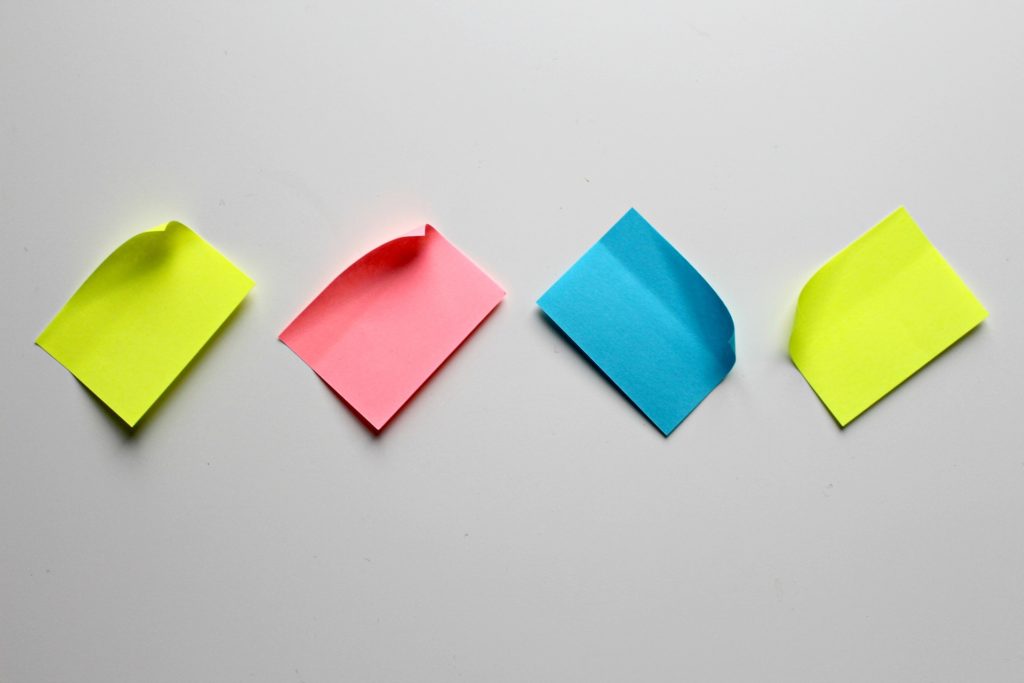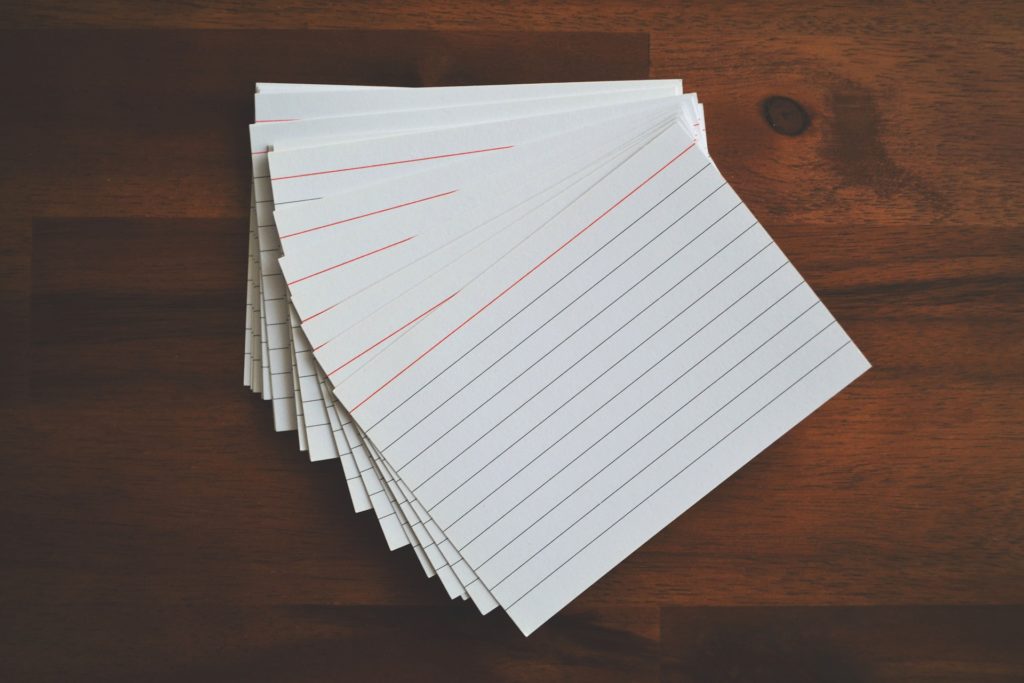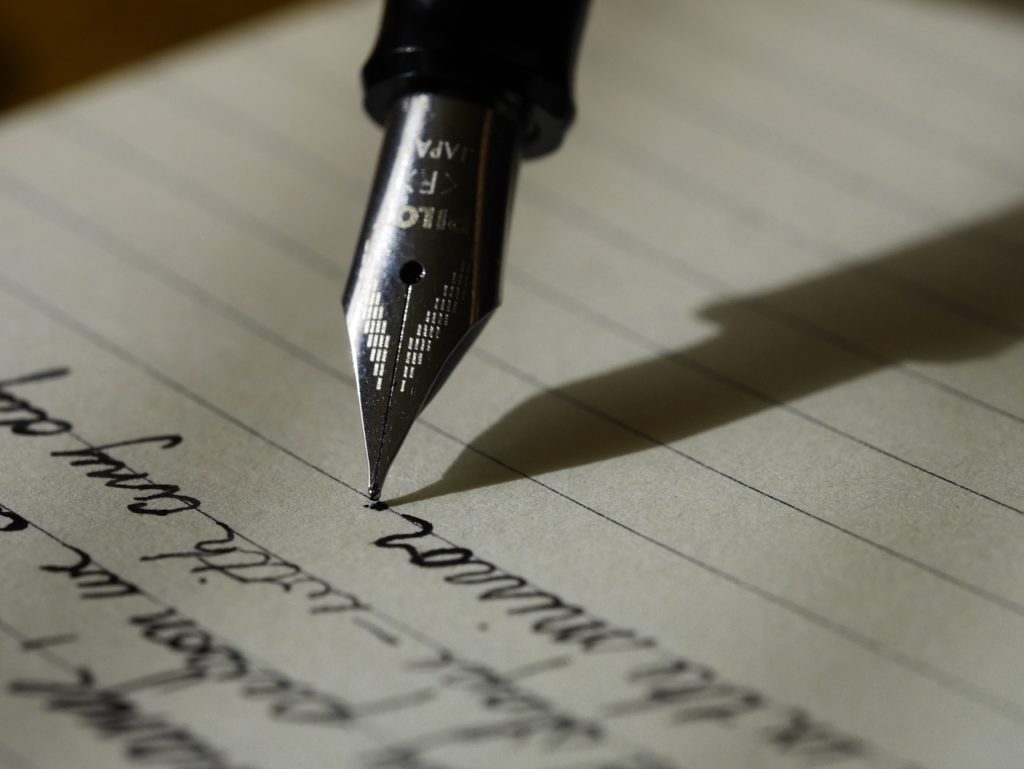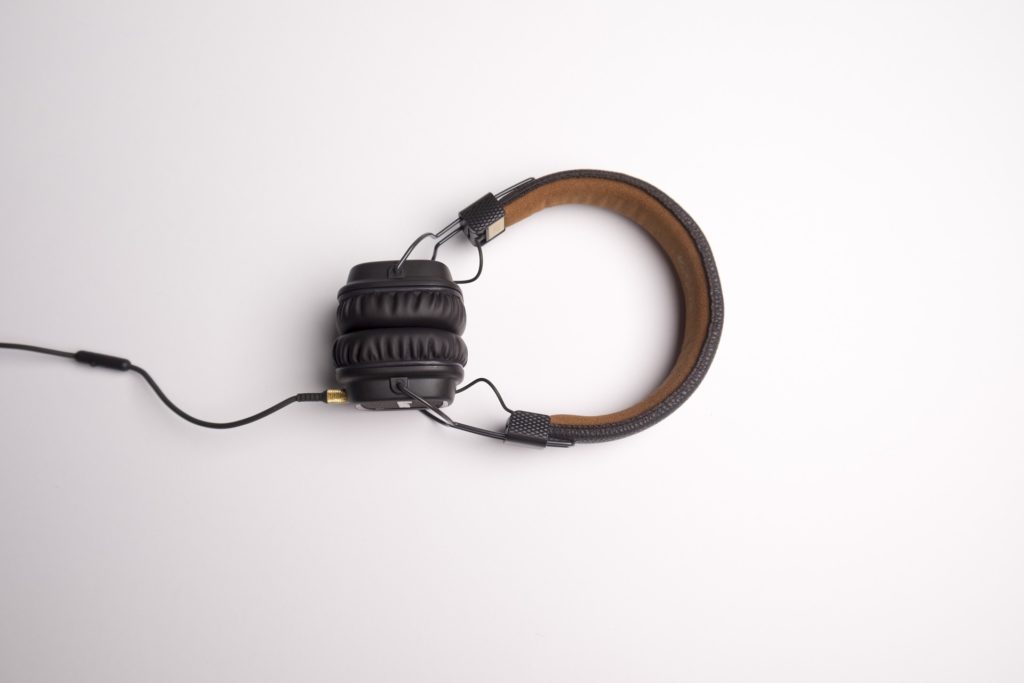
After I studied vocabulary for a long time, I just could not see my spaced repetition software anymore. I was done with it. I knew perfectly well that coming up with some other ways to memorize vocabulary would be a problem, but I just could not do this monotone style of studying anymore.
I needed to bring something new into my daily routine of studying to help me stay motivated and sane throughout my journey.
The following is a summary of the methods which I found useful even though some of them require you to invest quite some amount of time.
Please remember that everyone is different when it comes to memorizing vocabulary and some of the methods mentioned here might not work for you, so before fully committing to one or more, try them out and see if it works for you.
Label EVERYTHING

Yeah, label everything. Not just some things, EVERYTHING. I absolutely mean this literally. At some point, I even had my toilet seat labeled.
Start with the things which you use the most often, then carry on with things which you use only from time to time.
Get some tiny labels that are easy to stick anywhere and have fun. Whenever you use something which is labeled (which honestly just will not not happen if you do it right) try to think about how what you are using is called in German.
And if you are at it, don’t forget to put the article and the plural on those labels. I promise you will know the German names of everything in your apartment in no time.
On top of that it leads to some very funny situations once you get visitors. In total, it was a win win situation for me and I’m sure it will be for most of you as well.
Once you feel familiar with the labels you have put up, start using them in some simple sentences whenever you use something that is labeled. It doesn’t have to be a big sentence. Just some short sentence that you can easily construct without making mistakes.
Every Verb Is A Noun
You will be pleased to hear that in German, every verb can be made a noun and the rules for this are straight forward. If you know a verb, you basically also know the noun. It is that simple
Even though I usually do not teach grammar, let’s have a look at some examples to see how this works. (It is so simple, I don’t really consider it grammar)
Ich liebe es zu rennen. – I love to run
The verb here is obviously rennen (= to run). We can easily make this verb into a noun by taking the infinitve and adding das in front of it.
Rennen – das Rennen (be carefull as das Rennen also translates to the race)
reden – das Reden (= to talk)
laufen – das Laufen (= to walk)
schwimmen – das Schwimmen (= to swim)
trinken – das Trinken (= to drink)
As you can see, it is not a problem at all and since you learn the infinitive anyway, you will also be able to do this on your own.
It can also be a great motivation, if you keep in mind that for every verb you memorize you memorize a noun as well.
Some of you might question if this really works for every verb. It does. It even works for irregular verbs like sein, which will transform to das Sein.
Think in German
Thinking in German can help you to connect to the language on a deeper level and it will also help you to practice over the course of the whole day.
It doesn’t matter where you are, it will always be possible to do this, which enables you to literally practice anywhere at anytime.
I m not asking you to think in German about the meaning of life. It should be simple and it should match your level of German.
You could, for example describe the things that you are doing at the moment. For example, if you are washing your hands, you would think: Ich wasche meine Hände. Or let’s say you are cooking lunch right now then you would use: Ich koche gerade das Mittagessen.
Not only will this help you to constantly repeat German phrases, it will also connect those phrases to the action you are doing and to the picture you are seeing. After doing this for a couple of days, you will notice that your brain will remember this much more easy than just normal memorizing.
It will also help you to constantly use German, and can easily become part of your immersion process. Thinking in German will help you to constantly have the German language around you so that your brain is able to get used to it.
If you are at the beginning of learning German and you don’t know what sentences you should use, start out by thinking about your daily routine. What do you do every morning?
Are there reoccurring things in your daily life? Try to use those to start with this technique.
You can ask for translations of your sentences on the internet, or some friends who are able to speak German. There are great communities like the German Stackexchange or the German subreddit,where people will be able to help you out with this.
If you want to take this further, you could also use all the nouns that you already know.
Whenever you pick up or use an object of which you know the German translation, you think about it. Ideally you would construct a sentence, but I reckon that this is not always possible.
Use WhatsApp
Give the list of the words that you studied yesterday to your significant other, best friend or to your parents and tell them to ask you for translations over the course of the day. This is another technique that will help you to force your brain to think about German all the time.
Not only will you review vocabulary, but at the same time help your brain to become more and more involved with German. This technique can be used almost anywhere, where your cellphone has a signal.
Just writing you a word and check your answer afterwards shouldn’t be a problem as well.
This will be even more fun, if your significant other is, like in my case, a native speaker of the language which you are currently learning.
We had a lot of funny moments with this technique and I was very lucky because she was able to just speak the word to me.
Use Traditional Techniques

Wait did you not say you could not do this anymore? Why are you telling us now that in the end you went back to flashcards? Let me explain. The way I use flashcards is a little bit different from the traditional approach.
First of all, you will not find any translation on my flashcards. I just don’t think that learning the translation is the right way to do it. Instead I will put a description on my flashcards.
On top of that, I only use flashcards to learn the nouns and verbs and adjectives of the language, since I have different ways to memorize the other words.
Be as creative as you can with this and above everything, don’t forget to have fun. Learning a language should be an enjoyable thing after all.
I like to put weird or funny phrases on my flashcards. It helps me remember them better and makes it a fun exercise to review them.
Also, don’t write them down in one go. Only write down the new words that you are actually going to study on that day.
One thing to keep in mind is that German has a lot of compound words, you could use this to write down the super literal translation on the English side of the card. For the word “Wasserhahn” ,which translates to faucet, you would write down water rooster instead.
Most of the time I just choose some descriptive sentence for the English side of the card. What does this mean? Let’s look at the word Bett for example. For this word I would write down: I sleep on this every night.
While memorizing this card I think about the situation, and also try to imagine my bed. This helps me to make very powerful connections in my brain and it makes memorizing so much easier.
Germanize Your Phone
It might only make a small difference, but it helps you to stay in contact with German over the course of the day which is incredible valuable I think.
If you are doing this, make sure you actively pay attention to what you are doing on your phone instead of letting muscle memory guide you to the right menus.
Using German on your phone will take a while to get used to, because there are a lot of very specific words that you probably don’t know yet, but it will let you get constant exposure to the language.
Make It Visual
Have you ever wondered how children are able to pick up the language of their parents without some black magic or sacrifices, when they actually can’t do any translation, because they don’t know any words yet?
Probably not, but it’s pretty interesting. Of course their brain is better at learning a language, but they also use a different approach then we do.
They connect everything they hear to pictures. This technique can be especially powerful when memorizing German vocabulary, but it works just as well in any other language.
It’s a similar concept as not writing down a translation on your flashcard. You know the translation after you studied the flashcards, but your brain will also connect the word to the process of writing that sentence, to the process of thinking what sentence to put there, and to the situation the sentence describes.
The picture will provide you with yet another connection. Especially for German words, this will help you a lot since German has a lot of compound words. For those words it can be a fun and refreshing exercise to connect them from English to German, using the literal translation.
Speak German Everytime You Can
Do you have problems to keep new words in your head after you learned them for the first time? One way to deal with this can be to just substitute the words in your English sentences, with the German translation.
This will, of course, sound weird at the beginning, but it will give you the chance to use these words right away in the correct context.
In the beginning, right after starting to learn the language I did this because I knew almost no words but still wanted to show that I remembered them.
At some point I noticed, that I almost never forgot these words that I use like this. It’s obviously not usable for everyone, but for those of you who are able to, this will provide a big boost in learning the vocabulary.
Let’s look at a quick example for this. We will use the word Hausaufgaben, which means homework. A possible sentence for this word could be something like:
I really don’t want to do my Hausaufgaben today.
Sometimes it will not be possible to use this technique. After all, you can’t just tell you boss that you will finish this Aufgabe quickly before getting in your Auto and driving to the Post, to send away all the Briefe for today. If you are in a situation like this, just imagine the sentence in your head.
Become An Author

I would also like to recommend to you, to write some short story in German every time you finish reviewing the vocabulary. Try to use as much of those words that you reviewed, and use all of those words that you studied for the first time on this day.
It doesn’t have to be a whole page long and it gives you the chance to use these words right away. It will stop you from only mechanically repeat the meaning of the words, and at the same time let you think about them more deeply, which will help you to memorize them more easily.
Don’t force yourself to be a bestseller author here. Just write something silly and have some fun. You can post these short stories to some forum or on reddit, and let some native speaker correct them for you.
Try to imagine the scene which you are writing in your head, to make this technique even more successful.
Put up Little Notes Around the Apartment
I used to do this for words I just could not remember no matter how hard I tried. Use places in your apartment that you frequently look at, shelves in the kitchen, the toilet door or wall, the wall besides your bed.
Be creative here. Just remember to don’t overdo it. You should not put up more than a handful of flashcards in every spot. Whenever you pass by that spot, try to remember what cards you put there, and afterwards have a quick look at them.
Once you finally memorized these words, you can substitute them with new cards that just don’t seem to stick in your head.
Expose Yourself to Spoken German

I already wrote some article about what kind of listening practice you can do as a beginner, which you should definitely check out if you are interested in this.
Listening practice is one of the most important parts when it comes to learning a new language and in my opinion you should start with it as early as possible.
Just ten minutes everyday can teach you a lot if you do it consistently. Just make it your habit to watch one of these short children’s TV shows before you go to bed or in the afternoon while drinking a coffee.
Over time, you will pick up a lot of new vocabulary while at the same time getting better at understanding the native speakers. It will also help you to internalize general patterns, used in German sentences, more quickly.
Listening comprehension can be done very often. Try to listen to German audio while driving home, sitting on the bus, or just in any other situation where you don’t have to focus heavily on what you are doing.
Don’t worry if you have a hard time following the sentences in the beginning. Understanding the meaning of sentences without thinking to much about them will take a lot of time, so it’s fine if can only do this for a couple of sentences at first.
Reading

Reading can also be a powerful tool when it comes to learning German. There are various books out there ranging from A1 to C2 which give you the opportunity to practice what you have already learned, while deepening your understanding of the structure of sentences.
Picking up new words while reading happens mostly without you actually noticing and is especially powerful for memorizing conjunctions like weil, aber, dann, dass, but also for prepositions and frequently used verbs. For this technique it is very important to chose the right book.
Books which are to easy will not help you much, while books which are to hard will also fail to help you reach your goal.
If you have the chance to practice with a native speaker, have him or her ask you simple questions about the text. This will help you to get familiar with the German question words quickly and also enable you to understand the way Germans ask questions.
Group Everything Together
Don’t just use one technique. Use many different ones together. A lot of techniques have a natural synergy, like memorizing words and writing, or reading and listening.
Use these techniques together as much as possible, in oder to not dull your brain by repeating the same steps over and over. Blindly memorizing vocabulary will not help you to become fluent.
Of course you will know a lot of words, but you will not be able to formulate the sentences with these words. By writing a short story and using the new words, you will not only be able to memorize them better you will also train yourself in formulating sentences.
Don’t just listen to German audio. Try to speak as well. You need to master all the aspects of the German language in order to become a fluent speaker.